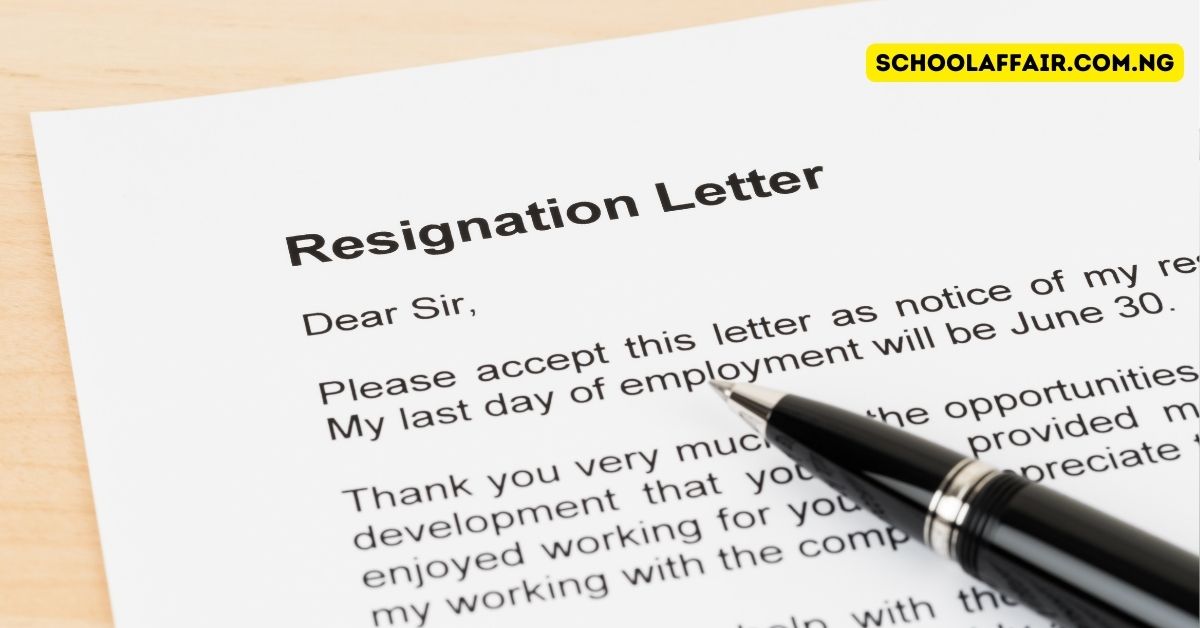Leaving a job is a significant life event that, at some point, many individuals will navigate. While millions resign every month, crafting a respectful resignation letter remains a challenge. A well-written letter can make the difference between an awkward goodbye and a chance for a long-term professional connection. In this post, we’ll explore the key elements of a resignation letter, discuss its importance, and provide tips to maintain professionalism throughout the process.
Introduction
Leaving a job involves more than a simple farewell; it requires a formal announcement through a resignation letter. This document, whether submitted via email or in print, officially communicates an employee’s decision to part ways with their current position. Its significance lies in its ability to set the tone for a positive departure and ensure a smooth transition to the next chapter of one’s career.
Why write a formal resignation letter?
A formal resignation letter serves multiple purposes. It documents the decision to resign, provides clarity to both parties involved, and facilitates a smooth transition. The professionalism displayed in the letter can leave a lasting impression, influencing future professional relationships and potential references.
Identifying the Right Time to Write a Resignation Letter
Timing is crucial when it comes to submitting a resignation letter. Ideally, it should follow a face-to-face conversation with your supervisor. Aim to submit the letter at least two weeks before your intended departure date to allow for proper planning and transition.
Types of Resignation Letters
Resignation letters come in various forms, tailored to different circumstances. Whether it’s an immediate resignation, a letter with a notice period, or one expressing gratitude and willingness to assist during the transition, choosing the right type depends on the situation.
Content and Structure of a Resignation Letter
A well-structured resignation letter typically includes a formal salutation, a statement of resignation with an end date, a body expressing gratitude and outlining transition plans, and a closing expressing appreciation and providing contact information.
Addressing the Letter to the Appropriate Person
Direct your resignation letter to your immediate supervisor or manager. In some cases, copying the HR department may be appropriate. This ensures that the right individuals are aware of your decision.
Maintaining a Professional Tone
Throughout the letter, maintaining a professional and positive tone is essential. Avoid unnecessary details about grievances and focus on expressing gratitude and appreciation for the opportunities provided by the company.
Providing a Reason for Resignation
While not mandatory, providing a brief and diplomatic reason for resigning can foster understanding. However, it’s not the place to vent frustrations; instead, focus on positive aspects and growth opportunities.
Including a Notice Period
Specify a notice period, usually two weeks, to allow your employer time to find a suitable replacement and ensure a smooth transition. This demonstrates professionalism and consideration for your colleagues.
Expressing Gratitude and Appreciation
Express genuine gratitude for the experiences, opportunities, and professional growth gained during your tenure with the company. Reflect on positive aspects and achievements.
Maintaining a Positive Tone Despite Reasons for Leaving
Regardless of your reasons for leaving, maintain a positive tone. Emphasize personal growth, career advancement, or new opportunities as reasons for your decision.
Resignation Letter Do’s and Don’ts
Do keep it brief, professional, and positive. Don’t use the letter to criticize colleagues or complain about the company. Follow these guidelines to leave on a positive note.

Sample Resignation Letter Template
[Your Name]
[Your Address]
[City, State, ZIP Code]
[Email Address]
[Phone Number]
[Date]
[Supervisor’s Name]
[Company Name]
[Company Address]
[City, State, ZIP Code]
Dear [Supervisor’s Name],
I am writing to formally resign from my position as [Your Position] at [Company Name], effective [Last Working Day], usually two weeks from the date of the letter.
I appreciate the opportunities for professional growth and development that [Company Name] has provided me during my time here. I have thoroughly enjoyed working with the [team/department] and have learned valuable skills that will contribute to my future endeavors.
During the next two weeks, I am committed to ensuring a smooth transition. I am more than willing to assist in training a replacement and completing any outstanding projects to the best of my ability.
I want to express my sincere gratitude for the support and mentorship I have received. I am confident that the skills and experiences gained here will be invaluable in my future career.
Thank you for understanding my decision, and I look forward to maintaining positive connections in the future.
Sincerely,
[Your Full Name]
Formatting and Presentation
Present the letter in a professional format, using a clear and organized structure. Choose a professional font and proofread for errors before submission.
Preparing for a Possible Counter Offer
Be prepared for the possibility of a counteroffer, evaluating its alignment with your long-term goals and career objectives.
Discussing Potential References in the Letter
Express your willingness to provide references and discuss this further in person or through subsequent communication.
Following Up with a Face-to-Face Conversation
Consider scheduling a face-to-face meeting with your supervisor to discuss your decision further, answer any questions, and solidify your departure plans.
Sending the Letter and Keeping a Copy
Send the resignation letter via email or official channels, and keep a copy for your records. This serves as a formal record of your resignation.
Handling a Negative or Difficult Situation
Even in challenging circumstances, maintain professionalism and refrain from expressing negativity in the resignation letter. Focus on the positive aspects of your experience.
Conclusion: Moving Forward After Resignation
Conclude the letter with a positive outlook for the future, expressing gratitude for the time spent with the company. Embrace the next chapter of your career journey with optimism and professionalism.
By mastering the art of resignation, individuals can navigate this transition period with grace, leaving a positive impact on both personal and professional fronts.




